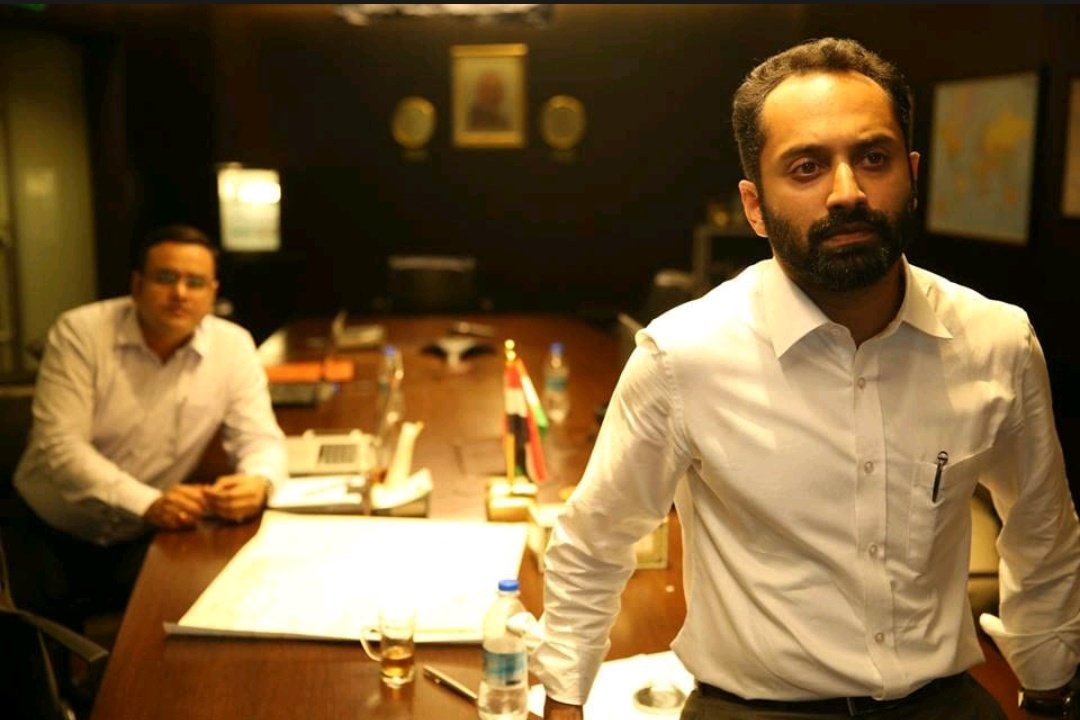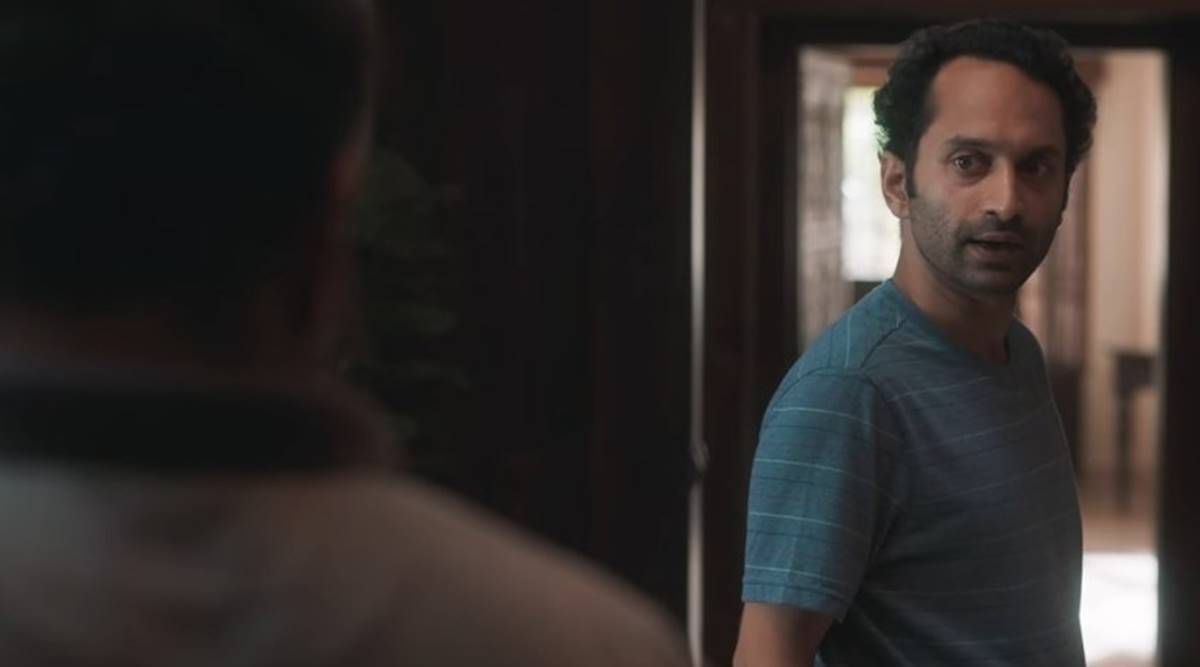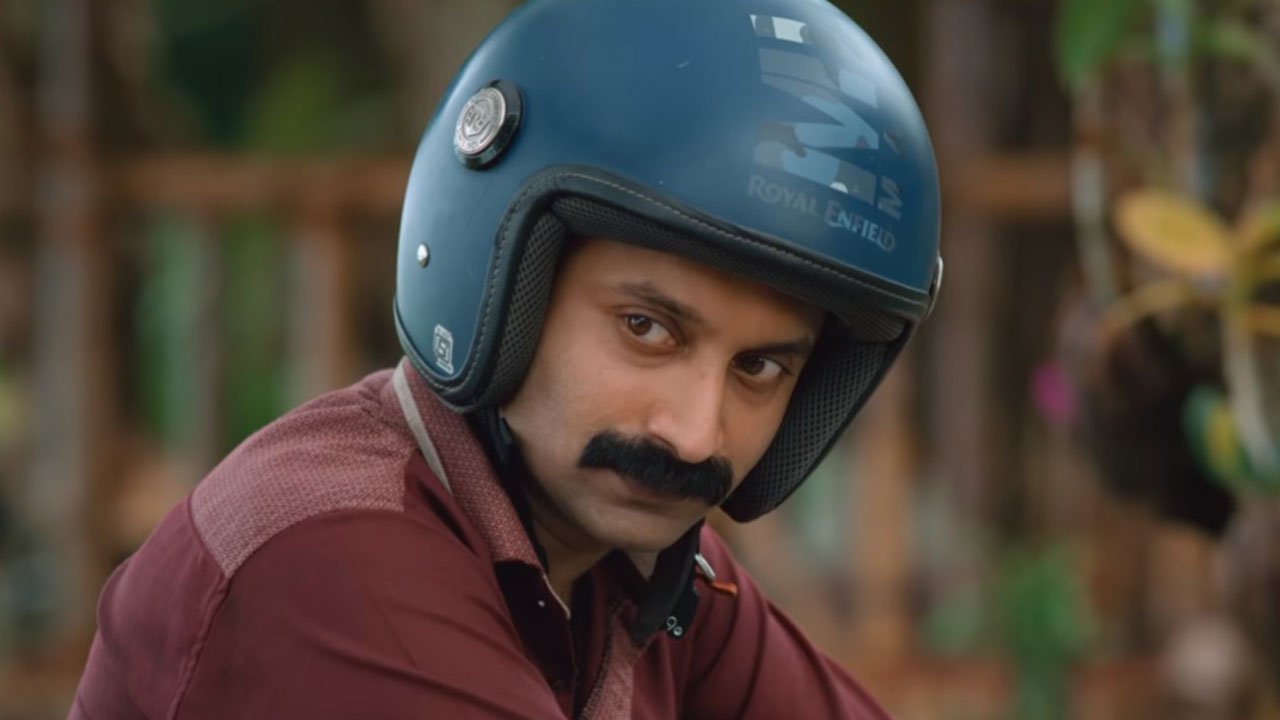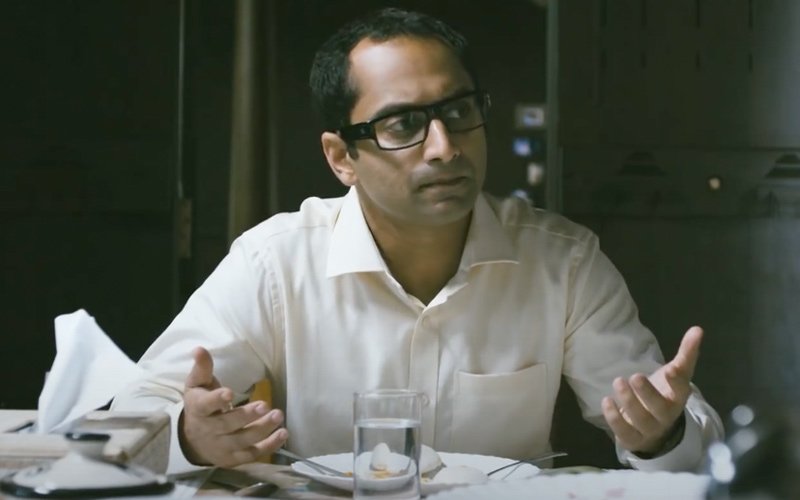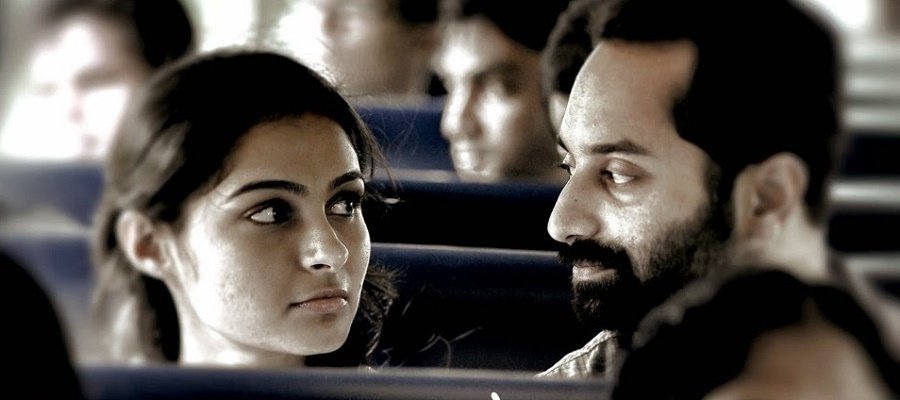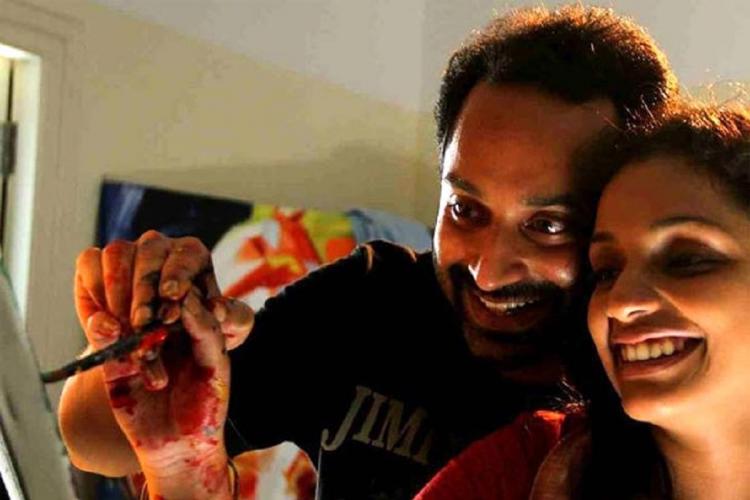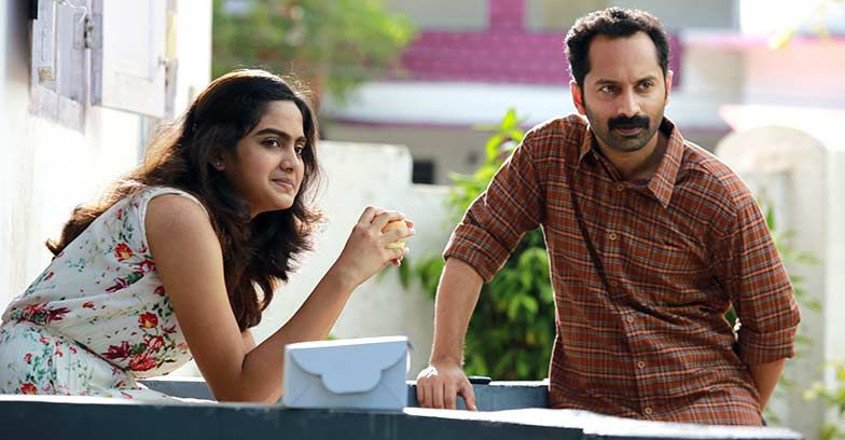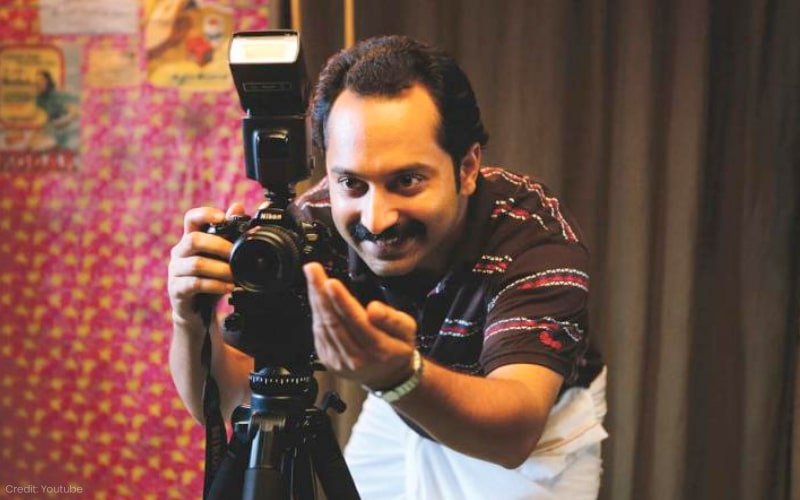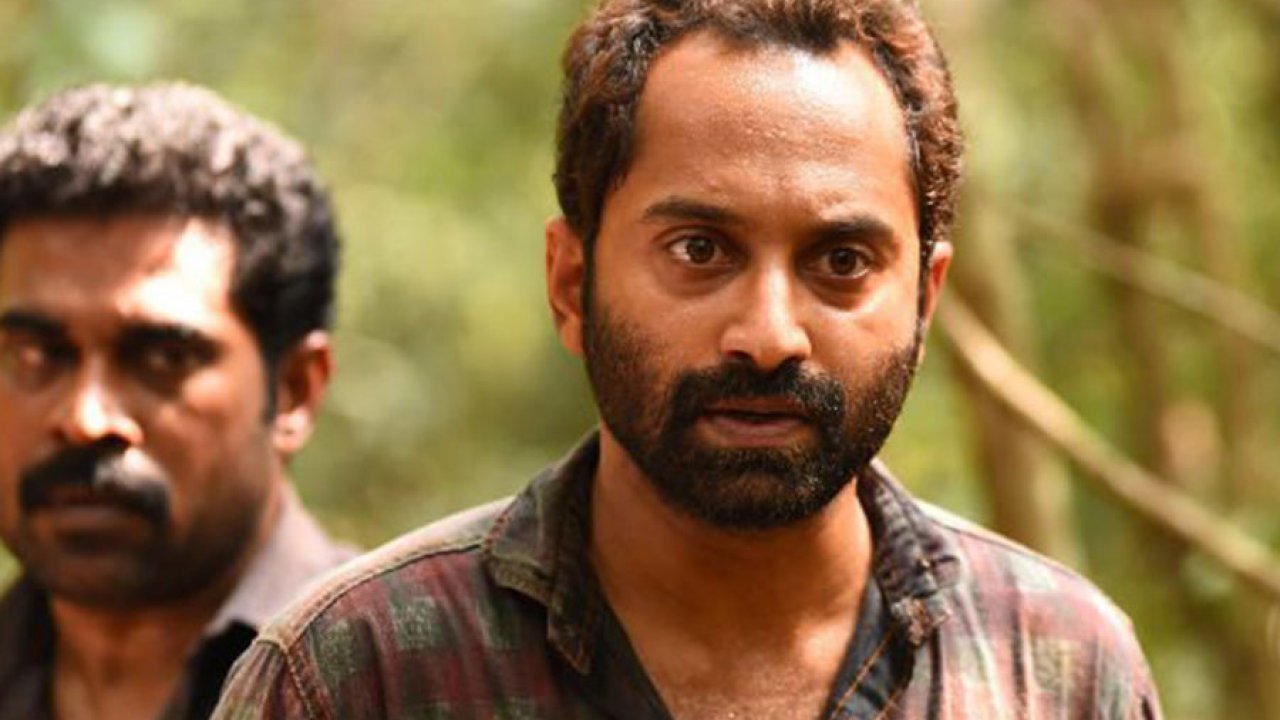Fahadh Faasil is a name that has steadily but surely gained traction in Hindi-speaking film audiences. Despite being an undisputed star in the South film industry, Faasil has come across as a sincere performer and a dedicated character actor. The realism in modern Malayali cinema is matched by equally relatable and understated people brought to life on screen. The actor has starred in and produced some of the most critically acclaimed and commercially successful films in the industry in the last decade. His diverse spectrum of roles includes almost all facets of human personality. Faasil is naturally spontaneous and especially relishes in roles that require minimal theatrics and ancillary markers such as an accent, voice tenor, makeup, or the likes thereof. Much like the late Irrfan Khan got noticed for his expressive eyes, Faasil has gained a reputation for saying a thousand words without saying anything. In fact, a digital media house did an entire article explaining how he does it.
Here’s a list of some of the best performances by the actor in more or less equally brilliant films. There will be a part two soon. Happy reading!
10. Take Off (2017)
Films based on real-life incidents, especially with a sensitive political core like ‘Take Off’, don’t often have much leeway in dramatization. The real impact these films make on audiences is through the force of the events themselves and the heroes that made it happen. Faasil plays one such determined bureaucrat, Manoj, whose unrelenting and boundless efforts save the lives of Indian nurses on foreign soil. Built as an edge-of-the-seat thriller, ‘Take Off’ retells and pays homages to the inspiring story of Indian nurses stuck in Iraq amidst takeover attempts by a terrorist outfit. Parvathy is the heart of the story; Faasil is the brains, quite like their characters.
9. Joji (2021)
Dileesh Pothan’s latest tries too hard. It eventually gets caught up in its own ambition to stand out as a classical film. The narration is forcefully sent places and feels half-hearted in comparison to his other films. But what remains consistent is an enigmatic and brilliant Fahadh Faasil performance. This time he plays the titular character, Joji, whose slight figure is not an impediment to his greedy grand plans. His lust for power is infectious, alluring other conniving family members to help him. There’s a fleeting uncertainty about the success of Joji’s plans of toppling his father’s kingdom that both Faasil and Pothan beautifully capture in their respective spaces. The character’s desperation and anxiety are almost tangible and come out through both physical and non-physical acts.
Related Read to Fahadh Faasil Movies: 10 Great Malayalam Movies To Stream on Prime Video
Faasil is patient in growing Joji’s presence in the larger landscape of the film. The run-of-the-mill guy turning a criminal mastermind is a haunting realization and isn’t sudden or spontaneous. Instead of reacting to situations like Faasil normally does in regular roles, there’s a lot that he keeps in, just like Joji does. Frustration, anger, the need to break free; everything remains under the skin, interacting and coagulating to form a poison that wreaks havoc. In arguably his most off-beat role, Faasil showcases his unexplored range as an actor and leaves a promising future of similar roles.
8. Kumbalangi Nights (2019)
There are several non-Malayali-speaking people who’ve sworn by ‘Kumbalangi Nights’ as the introduction to the new-age Malayali cinema. Debutant Madhu’s dream cast is headlined by Faasil, despite his not being the core conflict in the film but part of a bigger social commentary and dissection of the male psyche. Shammi, tastefully named after the industry stalwart is simply put, unpredictable. More often than not, gauging his feelings and moods is next to impossible. He’s like a dog when it meets a stranger. You don’t really know which foot to put forward. Faasil embodies this mystery with perfection. The cold stares, compensating grins, and the facade of hypocrisy that Shammi hides behind and maligns the world probably wouldn’t be too effective without him. Body language is another key part that goes into creating this image of a macho man or the “complete man”.
Related Read to Fahadh Faasil Movies: The 20 Best Indian Movies of 2020
Staying upright, seemingly in control of things, and never backing down from a situation. These subtleties are hard to catch but Faasil nails them in moments that matter the most. I still can’t quite make out a key aspect of Shammi’s personality, as to whether he really was mentally sick or a psychopath lacking empathy. These misgivings beset, Faasil once again sculpts an alluring character sketch that is as memorable in cinema as it is an indictment of the male ego.
7. North 24 Katham (2013)
Playing a person suffering from OCD is never easy. Although the authenticity of the disorder’s effect rests completely with the filmmaker and writer, the actor in action is never out of the equation. Harikrishnan’s unique journey along with complete strangers Gopalan and Narayani is akin to peeling an onion. His unraveling from a self-absorbed, unempathetic, and brilliant tech guy who isn’t at ease even around his family, to almost a wanderer-like figure, getting his feet wet, catching fish, and leading a life free of germophobia is a testament to the adventurous spirit of man.
Also, Read:Every Lijo Jose Pellissesry Film Ranked
This is probably one of the only films where Faasil’s eyes don’t precede him, tragically hid behind his spectacles. But that doesn’t stop him from growing on you as a character. ‘North 21 Kaatham’ celebrates the arbitrariness of life; the unannounced aligning of stars that quite often takes you by surprise and leaves you a different person; that is exactly what Faasil excels at achieving with Harikrishnan.
6. Annayum Rasoolum (2013)
‘Annayum’ resorts to a visual language seldom trusted by modern filmmakers. As it turns out, the impact of this choice is significant, mostly due to Faasil’s extraordinary ability to emote with his eyes and his chemistry with newcomer Andreia Jeremiah. Anna and Rasool, as the title translates, are the protagonists of romance who face serious challenges in the name of religion, caste, and societal status. Starting off as a stalker and stranger in the crowd, good-heart simpleton Rasool quickly wins over Anna with sweet and dumb-founded acts of professing his infatuation. The couple unsuccessfully attempts to pass the social litmus test and finds haven in rebellion, eventually meeting their tragic fate.
Related Read to Fahadh Faasil Movies: The 50 Best Films of 2020
Faasil’s central act is an understated mix of boyish charms and the flamboyance and passion of an adult lover. The lack of dialogue gives him an opportunity to optimize his god-gifted talents. There’s nary a false note in his performance, spending most of the screen time coming to terms with how much he liked Anna. We saw Anna through the entirety of the film through Rasool’s eyes and that’s where the magic happened. Contrast Rasool to Prakashan and you’d realize there are so many different ways to play this sort of a character.
5. Artist (2013)
‘Artist’ follows the lives of two lovers, played by Faasil and Ann Augustine, who share a passion for art. The couple navigates shortcomings in either of them during the course of the relationship forming the core of the exposition. The cinematic derivative of philosophy around life and that of human bond explored in the film’s literary source, Dreams in Prussian Blue, is driven by strong central performances. Along with the social commentary on societal expectations birthed by cast and religion, director Shyamaprasad creates a refreshing intensity and tension between Gayathri and Michael often missing in reel life. His meditative and patient approach allows the two characters to grow from their personalities before and after falling in love. Change in human behavior, usually from the onset of tragic events in one’s life, is intertwined exceedingly well with the changing nature of their relationship.
Also, Read: The 50 Best English Language Films Of 2015
Faasil again has an opportunity to bring out a contrast in two versions of his character, displaying his acting prowess. It is a thrill seeing this progression that we all go through in real life in a flow that one might easily associate with their own journey. The struggle to find expression for an actor on screen is actually harder to emote them like Faasil usually does. But here, his impression is spot on. Shyamaprasad’s haunting vision comes to a realization with the emphatic use of Prussian blue and striking imagery to create a mantlepiece for modern romance on screen.
4. Trance (2020)
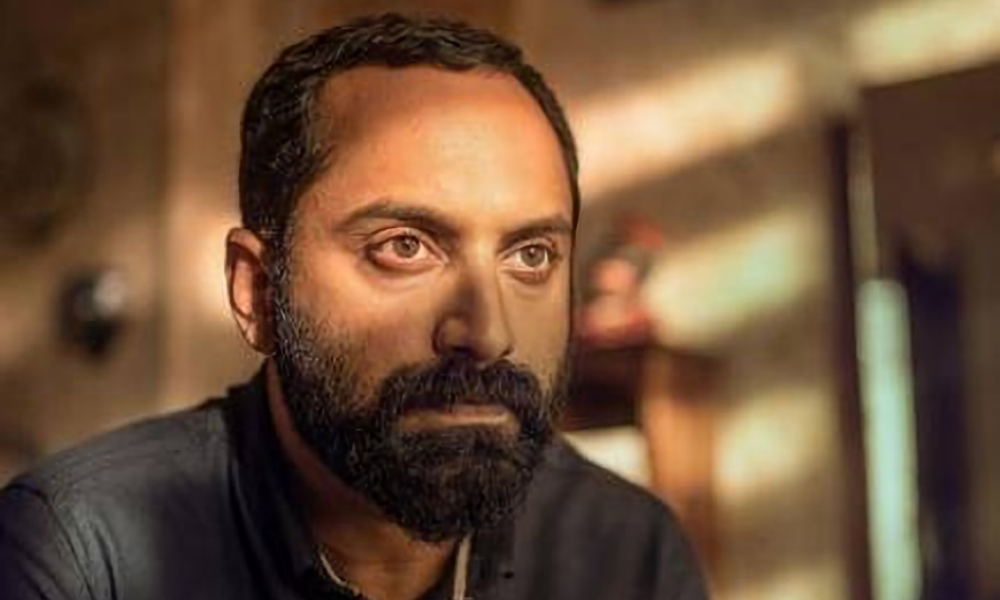
When you first start watching ‘Trance’, it doesn’t feel like the dark and grim world it later draws curtains to. Faasil’s Biju Prasadh is a modicum that director Anwar Rasheed uses to realize with vivid visualization the untenable and tangible fallacy of religious healing. The horrors of human greed, especially at the cost of human vulnerability, make the experience of watching the film a bit restrictive. Faasil moves from one spectrum of theatrical performance – as the unassuming and banal Biju Prasad, seeking to make a living – to another – as the flamboyant and power-hungry Joshua. His immense craft is actually not segregating the two aspects of the personalities but integrating them to a humane fault that is almost imperceptible and flattering. Faasil’s command over speech and the powerful, charming dialogue is not his usual MO. But his conviction is infectious and impactful. ‘Trance’ is not a perfect movie – not by any imagination – but manages to ride on the superior acting genes of its star and be an entertaining watch.
Read The Complete Review of Trance Here
3. Njan Prakashan (2018)
A great actor can play as well a king as a joker. Phoenix proved that last year and Faasil did with ‘Prakashan’, or PR Akash, as his character christens himself. His habit of taking on seemingly unlikeable characters and softening viewers bringing out the iota of humanity in them doesn’t veer off in ‘Njan Prakashan’ – it shines the brightest. ‘Njan’ sees him take on a role that fits his profile perfectly. Prakashan’s journey of finding himself is not too different from a coming-of-age story. He starts off as this vile, manipulative master raconteur, capable of affixing even the sharpest minds to the impromptu details of his fables. Despite not completely ditching this side of his personality in the redemption. Faasil’s masterful acumen keeps a nuanced strain of it intact. Credit has to be given to director Sathyan Anthikad, whose trained eye captures the story in an organic and free-flowing manner that facilitates an effortless character arc.
Similar Read to Fahadh Faasil Movies: Every Sriram Raghavan Film Ranked
The film’s larger message isn’t even about just one individual but the lives of millions around the world. The effort to love and associate your energy into making positive changes around you in the lives of other people is never lost in oblivion. It lingers, staving off hindrances until you realize that it is worth carrying on. Faail’s brutally sincere and endearing Prakashan is a modern-day hero and must be appreciated even greatly in the times of this pandemic.
2. Maheshinte Praathikaaram (2016)
I can assuredly say ‘Maheshinte’ is the best comedy to come out in India in this decade. Without ever going over the top, without using traditional, rustic comedic tropes and cheap antics, ‘Maheshinte’ builds on a new cinematic language that is decent, realistic, and retains the laughs, albeit this time, they aren’t manufactured. I can also vouch for having never seen buying a pair of 8 number Luna slippers as exciting or rewarding. Faasil’s next-door Mahesh operates his father’s photography studio in picturesque Idukki. Although lacking his father’s natural flair and instinct, he is a popular figure among the folks in the town. An innocuous push turns out to be a public humiliation for him that he vows to avenge and until then, no slippers. His troubled love life sees high-school sweetheart chose an NRI over him, but all’s not lost. Mahesh rebuilds and in spectacular fashion.
Similar Read to Fahadh Faasil Movies: The 10 Best Manoj Bajpayee Movie Performances
The natural actor in Faasil is tailor-made to play Mahesh. Such is the ease with which he executes those affectionate exchanges and heart-warming smiles, you actually second-guess if you’re really watching a movie. Little things that he does – like the head nods when presenting fruit to Sowmya, the eager and over enthusiastic tending of a successful and rich NRI, smiling across at Jimsy while in a headlock – add such a great impact that you come out remembering and cherishing them. There are few who could match Faasil’s ingenious version of Mahesh. His retaliation, itself an inspirational shooting choice from Pothan, is not one laced with vile anger and hatred, but one that comes with love and peace. Pothan’s lyrical experiment, like the entire sequence of Mahesh and Sowmya’s romance, origin, and present-day, successfully subverts genre tropes and presents the narrative in a new and refreshing way.
1. Thondimuthalam Driksakshiyam (2017)
Dileesh Pothan’s strongest film is also the least happening and unexciting in the events that transpire. Resisting the labels, ‘Thondi’ benefits from the lack of forceful narrative inventions in terms of the flow of the story. The apparent compromise Pothan makes churns great dividends for viewers like me, expecting a film to be presented like a slice of life, grounded in reality and existing in real-like time and space. I remember raving about the film to my Malayali friend and couldn’t stop talking about Fahadh Faasil. His eyes, mostly, but also the unsaid intelligence of his character. Faasil’s Prasad, unironically sharing the same name with his nemesis in the film, is not just a thief by the time chetta is done with him. A disarming smile, tender gaze, and steady demeanor give Prasad an innocent, child-like quality. Pothan’s generous approach, though, always forces us to see the entire frame and many players in the scene together, leaving little space for closeups.
Also, Read: The 10 Best Daniel Day-Lewis Films
‘Thondi’, like most of the New Malayali cinema, doesn’t crescendo to an end but sparks the beginning of conversations about morals, philosophy, and everything in between the good and bad. Faasil’s Prakash rests above that fine grey area of theatrics where few dare to walk; and even if they do, never seem to get the point across. The plain-looking actor packs a powerful punch and turns a nuanced performance difficult to translate into written language.

